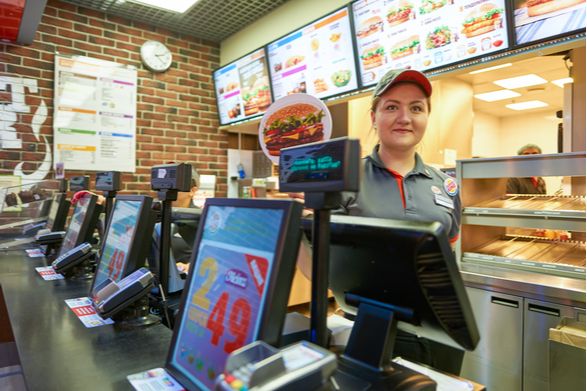We are less than two weeks away from Labor Day, a holiday meant to celebrate the contribution of the U.S. worker to the economy.
Right now, the national level of unemployment is low. Unemployment rates for women, blacks, and Hispanics are at or near historic lows. Americans are able to get up each day and head out to a job of their choosing. With seven million unfilled jobs, there are more available jobs than there are people to work them.
Perhaps that’s why it’s now become fashionable to assess the quality of jobs and label some jobs as “good” — implying that others are bad.
Those other jobs tend to be entry-level, lower wage, or low-skilled jobs. But they are still valuable and not worthy of being denigrated. Being a nail technician or working fast food job can be career starting points and doorways to small business ownership.
So why are we increasingly hearing about not just needing to create jobs but “good jobs” or jobs that pay a “living wage?”
A new USA Today essay caught my eye because the writer Frayda Levin explains why policymakers cause harm when they demean some types of work as worse than others:
… we can assume that they are referring to often thankless jobs — cashiers at McDonald’s, janitors or almost any blue-collar job. The implication is that these jobs have no future or, worse, they are not worthy of a person’s effort.
Imagine how those who determinedly clean bathrooms feel when they hear our elected officials demean their work. Whenever I see someone cleaning a bathroom, I thank that person. I want the person to know the work is worthy and appreciated.
Not only are our politicians insulting millions of hardworking Americans, they often push policies that undermine jobs not deemed to be “good.” …
…
What the “good” jobs champions in politics and the academy cannot grasp is the inherent nobility in work itself. They haughtily believe that only certain jobs — the ones they find dignified — can be fulfilling to people. They also seemingly cannot grasp that all work experience can prepare a worker for the next step forward.
I encourage you to read the full essay here.
Levin shares her own waitressing experience starting as a counter girl and moving up high-end restaurants to earn $100 a night in tips. Many people can see themselves in her experience.
She also discusses why we shouldn’t shun jobs that do not require a four-year degree. It’s important to remember this now as we fight the stigma against the trades. It may have been well-intentioned to push college as the path to success but now we have churned out millions of people with degrees –or many without degrees– but with a lot of debt.
Instead of telling young people to personalize their career and pursue the best path for them (even if it didn’t cut through a college campus), society made alternatives to college seem only for the poor, unintelligent and incapable.
If we focus on outcomes rather than a one-size-fits-all approach to learning, we can embrace all types of pathways to success. Part of that embrace is recognizing the value of all jobs. (Let’s leave aside the illegal and morally bankrupt professions.)
Botton line: There is dignity in work. Check out this discussion: https://thehill.com/node/457687


